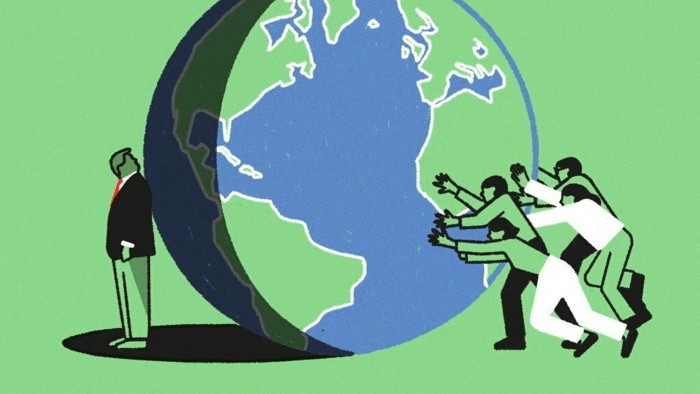Stay informed with free updates
Simply sign up to the Climate change myFT Digest — delivered directly to your inbox.
The writer is chief executive of the European Climate Foundation and was France’s special representative for COP21
In the global fight against climate change, Donald Trump’s election victory is undoubtedly a challenging setback. The next four years are critical for limiting global warming to 1.5C — every 10th of a degree counts. Trump’s promise to take the US — one of the world’s largest current and historic emitters — out of the Paris Agreement would undoubtedly be damaging and may embolden those countries and vested interests still clinging to the fossil fuel era.
Yet no amount of misinformation can hide the fact that the climate crisis is deepening. Heatwaves, hurricanes and floods are leaving a devastating trail of lives lost and economies disrupted. In 2023 alone, natural disasters caused a record $380bn in economic damage. The cost of inaction is huge, and close to uninsurable.
An atmosphere of doom and gloom surrounds the opening of COP29. But this is not the time for despair. Multilateral climate action has proven resilient before, and it can — and must — do so again.
In many ways, we have been here before. In 2017, when Trump announced the US would leave the Paris Agreement, it did not trigger the domino effect that he hoped for. Quite the opposite: many countries redoubled their commitment, and China in particular saw an opportunity to accelerate its leadership and competitive advantage in green technology.
Today, the case for staying committed to the Paris Agreement is even stronger. The International Energy Agency expects the global market for key clean technologies to triple to more than $2tn by 2035. Countries now recognise that their future prosperity is closely tied to their ability to transition to clean energy. This is spurring an intense race to secure a slice of rapidly expanding green industries. Renewables are booming worldwide, with global capacity expanding at a remarkable pace.
Through the Inflation Reduction Act, the US has reaped significant benefits from green industrialisation. There was a record $71bn worth of clean energy investment in the first three months of 2024, up 40 per cent on the first quarter of 2023, and new jobs have been created across the country. A U-turn now would not halt global momentum, but it would deprive Americans of its benefits.
Chinese officials have been clear. China is committed to multilateral action and to accelerating its transition to net zero emissions, regardless of the US’s stance. It has bet big on being the global leader in green technology, investing $890bn in renewables infrastructure in 2023 alone. With a surplus capacity in solar panels and batteries exceeding domestic demand, it also has a strong interest in other countries staying the course to ensure a market for its exports. Any US loss in these strategic sectors would only be to the gain of China and others.
Europe also has strategic interests in ramping up its own climate efforts. The transition to net zero is critical not only to its energy security but also to its long-term economic competitiveness.
Competition in green technologies is not a zero-sum game: multilateral co-operation is more essential than ever. No country or bloc can tackle climate change alone. The every-nation-for-itself mentality of the president-elect offers no real solutions.
At COP29, countries are set to negotiate a new climate finance goal — essential for enabling developing countries to increase their climate ambition. A breakthrough will be harder without US leadership, but it is far from impossible. All countries with the means to help must step up with public financing commitments and inject urgency into tackling the debt crisis and bring down the cost of private capital. This would give developing nations assurance that affordable finance will be available to support their green development goals.
Effective multilateralism must also include more than just nation states. In 2017, a movement of US cities, states and businesses emerged to uphold climate action, defying Trump under the slogan “We are Still In”. Today, the America is All In coalition represents 65 per cent of the US population and 68 per cent of GDP. Around the world, a growing network of ambitious subnational actors provides a critical safety net when national governments fail to act. The prospect of US withdrawal should push us to formally recognise their role and give them a formal voice in international climate talks.
This is not a time for panic, but for resolve. Those of us committed to tackling the climate crisis anticipated this; we haven’t been blindsided as in 2016. We are well prepared. We have economic logic, a critical mass of countries, and public support on our side. Let’s stay calm and carry on.
Read the full article here

